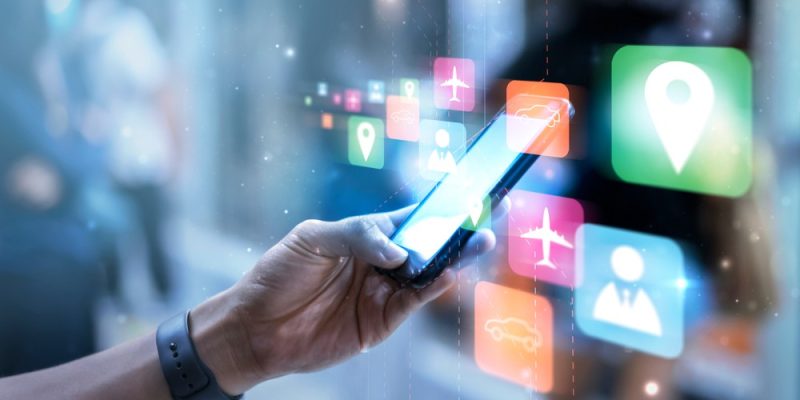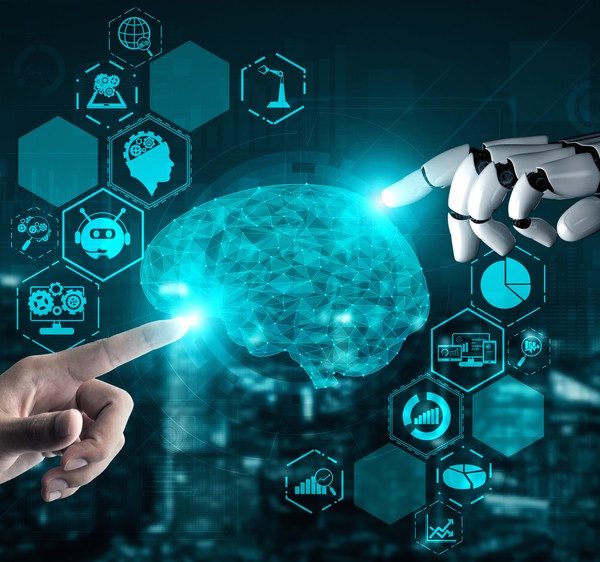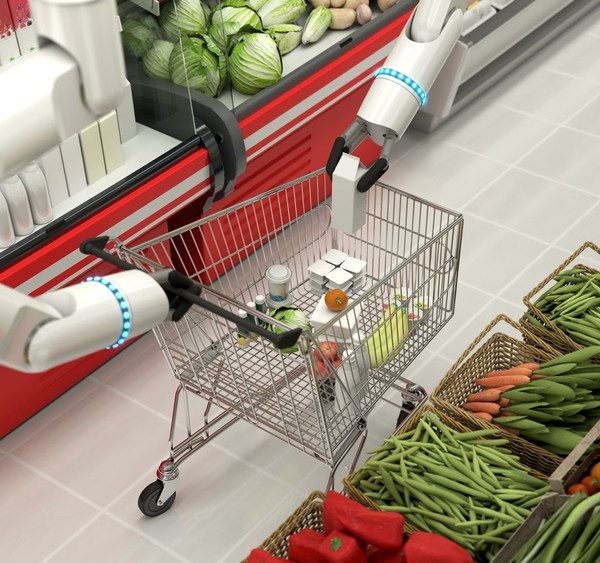
AI in Travel: How is AI Reforming the Travel Industry
The travel industry has seen a significant transformation in recent years, thanks to the incredible advancements in Artificial Intelligence (AI). From travel planning to landing in the destination, AI-powered tools and solutions are highly leveraged by travel companies to enhance their operations and provide an unparalleled experience to travelers.
In this article, we will explore how AI has revolutionized the travel industry and the significant impact it has on travelers worldwide. We will also discuss the latest AI trends that travel companies should be aware of to stay ahead in the game.
Facial Recognition Systems and Airport Security Scanning Devices
AI technology has been incorporated into many areas of the travel and tourism industry, and the most significant one is in airports. Facial recognition systems are now widely used in airports to identify travelers, making the check-in process more efficient and hassle-free. The system captures the passenger’s facial features and compares them with their travel documents to ensure a smooth and secure check-in process.
Similarly, airport security scanning devices use AI algorithms to detect any suspicious behavior or items in the luggage, making air travel safer and more secure.
Read Also: AI in Subway Systems: How is it Used?
AI for Personalized Travel Experience
Another way AI is transforming the travel industry is by providing travelers with a personalized experience. AI-powered chatbots and virtual assistants are becoming increasingly popular among travel companies. These chatbots can communicate with travelers in real-time, answering their queries, providing information about travel destinations, and suggesting personalized travel itineraries based on their preferences.
AI chatbots can also assist travelers in booking flights, hotels, and other travel-related activities, making travel planning a breeze. These tools not only save time but also provide a seamless and personalized travel experience to travelers.
AI-Powered Travel Booking: How AI Assistants are Revolutionizing the Way We Travel
The rise of AI technology has brought many changes to various industries, and the travel sector is no exception. With AI-powered assistants and chatbots, travelers can now easily book flights, search for accommodation, and even hire vehicles online without the need to visit a travel agency.
Intelligent Chatbots for Personalized Booking Experience
Thanks to the AI-powered chatbots, travelers can now enjoy a more personalized booking experience. These chatbots are deployed on various social media sites like Facebook Messenger, Skype, WhatsApp, and Viber, allowing travelers to book their travel requirements from anywhere in the world.
Even travel reservation giants like Booking.com, Skyscanner, and Expedia are utilizing chatbots to enhance their operations. When you start a conversation with a chatbot, you will be prompted to enter your travel details, and the bot will search through various booking sites to find you the best deal.
For instance, Skyscanner uses its chatbot to offer travelers a more personalized booking experience. The bot helps users find the cheapest flights and provides them with travel advice and recommendations. This allows travelers to save time and money by finding the best travel deals quickly.
Robots for Face-to-Face Customer Services
Robots are gradually taking over customer services in the travel industry, providing more efficient and hassle-free customer service experiences. Travelers no longer need to wait in long queues to get information or directions as robots are now deployed in airports and hotels to assist them.
One such example is the robot deployed in London Heathrow airport that guides passengers in terminals, providing them with the necessary information. Similarly, the Henn-na Hotel in Nagasaki is the world’s first hotel fully staffed by multilingual robots used primarily for check-in and checkout processing.
Another innovative AI solution is ‘Connie,’ the robot deployed in the Hilton McLean hotel in Virginia. Connie can answer customer queries and offer suggestions for local tourist attractions. This not only enhances the customer experience but also frees up the hotel staff to focus on more critical tasks.
AI-Driven Flight Forecasting Applications: Finding The Best Deals
Are you tired of spending hours searching for the best flight deals? Thanks to AI-driven smart price prediction applications, travelers can now easily find the best flight prices at the right time. These innovative technologies, such as Hopper, have revolutionized the industry and made finding the optimal flight easier than ever before.
Hopper: The Smart Price Predictor
One such application that has taken the travel industry by storm is Hopper. This application is based on machine learning algorithms and utilizes a vast database of historic and live flight prices to make accurate predictions. By tracking flights, Hopper provides users with personalized recommendations on whether they should book a flight now or wait for a better price.
Since its introduction, Hopper has sold over $600 million worth of flight tickets, a testament to its effectiveness. By leveraging its extensive database, Hopper provides users with optimal hotel prices and flights while recommending the most suitable time to book a flight.
Data Analytics: Identifying Hidden Insights
In the travel industry, vast amounts of data are generated every second. Travel companies can leverage this data to gain valuable insights and make informed decisions about customer preferences. However, sorting through this data can be a daunting task for humans alone.
Enter AI. By leveraging AI, travel companies can quickly and accurately sort through massive data sets, identifying hidden gems and valuable insights. For example, the Dorchester Collection hotel uses AI to analyze customer data, providing them with valuable information about customer preferences.
Sentiment Analysis: Leveraging Social Media to Enhance Customer Experience
Social media is a powerful tool that can be leveraged to analyze customer sentiment and improve their travel experience. Airlines and hotels are increasingly using AI-powered tools to track customer sentiment on social media platforms. For instance, Mindtree’s PaxPulse is a social intelligence and recommendation platform designed for the airline industry. It uses pre-built classifiers, algorithms, and machine learning frameworks to analyze customer sentiment and deliver personalized recommendations.
AI Trends in Travel Industry For 2021 and Beyond
The travel industry is poised for significant growth in the coming years, with air passenger numbers expected to nearly double by 2036. However, the COVID-19 pandemic has significantly impacted the industry, making it more critical than ever to embrace AI-powered solutions to optimize the customer experience and streamline operations. Here are some of the AI trends that will likely shape the future of the travel industry:
- Personalization: AI-powered solutions can help travel companies create personalized experiences for their customers by analyzing data such as customer preferences, past behaviors, and purchase history.
- Chatbots: AI-powered chatbots can help companies provide quick and personalized customer service 24/7, improving the overall customer experience.
- Predictive Analytics: AI-powered predictive analytics can help travel companies optimize pricing, inventory management, and staffing levels to meet customer demand.
- Contactless Technologies: AI-powered technologies like facial recognition and voice-activated interfaces can help reduce physical contact and improve health and safety measures.
Smart Baggage Handling
Air travel has become an integral part of our lives, connecting us to various destinations across the globe. However, the airport experience can be quite overwhelming, particularly when it comes to baggage handling. With millions of bags being processed each year, it’s no wonder that airports are constantly exploring innovative ways to streamline the process. This is where Artificial Intelligence (AI) comes in, offering a smarter solution to handle luggage efficiently.
Harnessing the potential of AI, airport IT specialist SITA is leading the way in developing smart baggage handling systems. With the possibility of full automation through robotics and AI, lost luggage could soon be a thing of the past. In fact, some airports have already implemented AI solutions with successful pilot projects, such as Eindhoven Airport’s AI-powered luggage handling systems, which do not require baggage labels.
To ensure the success of AI-powered baggage handling systems, airports must consider several factors. For example, the system must be able to accurately detect and track bags throughout the airport, ensuring they reach the correct destination. Additionally, it must be able to adapt to any changes in the journey, such as delays or cancellations.
Robots and Voice Assistants
The COVID-19 pandemic has had a significant impact on the travel industry, resulting in a shift towards contactless processes. As a result, experts are exploring new technologies that offer sophisticated mechanisms for check-in, checkout processes, and general passenger assistance. Self-service is expected to become the norm in the post-pandemic era, with robots and voice assistants leading the way.
Robots and voice assistants have already proven to be valuable assets in guest rooms, ships, and airport security. With the current situation, the industry can expect to see a rise in the use of both technologies. Robots can assist with tasks such as luggage handling, cleaning, and providing information to passengers, while voice assistants can help passengers with general inquiries, reducing the need for face-to-face interactions.
Personalized Travel Planning
The travel industry is constantly evolving, and travel planning is no exception. The use of mobile applications that provide personalized end-to-end travel planning is expected to increase in the coming years. These applications can incorporate new features such as tracking passenger health by integrating wearable technologies and recommending safe travel zones.
Personalized travel planning can help passengers make informed decisions, ensuring their travel experience is tailored to their needs. By utilizing AI, these applications can offer a more efficient and seamless journey while maintaining customer satisfaction at a higher level.
What Other Industries Does AI Impact?
Conclusion
AI applications are revolutionizing the travel and tourism industry, offering innovative solutions to improve the airport experience. From smart baggage handling to robots and voice assistants, and personalized travel planning, AI has the potential to transform the way we travel. As the industry continues to evolve, we can expect to see even more AI-powered solutions that will enhance the passenger experience while ensuring their safety and wellbeing.
























